Photo: Sasha Turrentine
Empowertisement, the act of using female empowerment as advertisement, is roaring hard right now. I’m not going to knock it because let’s face it, we live in a capitalist society. Companies need money to do good and affect change. Where does the money come from? By selling stuff.
Empowertisement, when done well, can be a beautiful thing. It is incredibly powerful to see diverse faces and voices reflected in marketing material because it shows that you belong. REI believes that women are a Force of Nature. The North Face shows us that She Moves Mountains. Outdoor Research empowers with She Adventures.
Mountain Hardwear? As a sponsor of Flash Foxy’s Women’s Climbing Festival, they want you to buy their jeans.
Photo: Sasha Turrentine
Flash Foxy began as an online platform to celebrate women climbing with other women, and to inspire and connect women to one another. As the platform grew, Flash Foxy expanded to hosting events across the United States. Founder Shelma Jun emphasizes the importance of creating a climbing community that reflects and welcomes everyone. She has written and spoken extensively about how gender affects your experience as a climber.
Jun states that the Women’s Climbing Festival is a “safe space to discuss the challenges, triumphs, and questions around being a female climber, a female in the outdoor space, or even just being a female… [and] to discuss intersectional feminism—bringing to light the additional challenges that women of color, queer women, adaptive women, and others face on top of the challenge of being a female.”
Photo: The RV Project c/o Flash Foxy
Featured sponsor Mountain Hardwear recently published a post about their experience at this year’s Women’s Climbing Festival. This piece missed the point with language that perpetuates gender stereotypes and erases Indigenous perspectives in favor of launching their new denim line.
“With their third annual festival in their original location, Bishop California – we could not help but to join in on the movement that Flash Foxy and the WCF has begun. We did so with something specific on our minds, Style!”
“Knowing that women are always on the hunt for their next favorite climbing pant… why not bring the jean with us to Bishop?”
After Jimmy Chin and Daniel Woods’ GQ debacle last year, we all know how climbers feel about style. Joking aside, much like the women in the GQ photoshoot, Mountain Hardwear’s intention behind attending the Women’s Climbing Festival revolved around looking good and being an accessory.
Photo: The RV Project c/o Flash Foxy
While attendees rave about making new friendships or gaining confidence as a climber, marketing operations manager Lina Adams says women like to shop.
“If we like what we wear and feel comfortable in it, we climb better. We’re able to focus purely on the task at hand, not how our pants might tear when doing a heel hook, snag when scrambling down the back of a boulder or fit in an unflattering way.”
Adams goes on to posit that women only crush when their pants don’t rip or fit in an unflattering way. Never mind the fact that women are consistently judged in the outdoors for how they do or do not look. Never mind the fact that women have been climbing hard since before climbing was cool.
Photo: The RV Project c/o Flash Foxy
Going back to sponsorship, Adams says “one aspect that… made us honored to sponsor [the event], Flash Foxy and the WCF truly care about the location where they’re organizing an event. Besides… giving back to the local economy, they also raised $2,900 for the Access Fund and local stewardship nonprofit, Friends of the Inyo.”
Jolie Varela, a Paiute and Yokut woman and founder of Indigenous Women Hike, spoke on a panel at the Women’s Climbing Festival about inclusivity and diversity in climbing. The Volcanic Tablelands and the Buttermilks are areas that hold cultural significance for the indigenous people in Payahüünadü, or the Owens Valley.
Adams erases Indigenous voices from Bishop and the Women’s Climbing Festival with the above statement. Rather than using the stewardship aspect as a way to educate climbers about their impact on the land and the tribes, she uses it as another selling point for Hardwear denim.
Photo: Sasha Turrentine
Women still struggle with being taken seriously as climbers and people. Marketing that perpetuates gender stereotypes, under the guise of empowerment, is problematic and damaging.
As women and allies, we need to hold each other and the brands that we support accountable for the stories that they’re telling. We need to call this out whenever we see it to move towards a more inclusive and equitable outdoors. Companies need to do better.
Celebrate the strength in women climbing with other women, not the strength of women climbing in the latest line of clothing. Celebrate the power in giving women tools and a safe space to succeed. Celebrate women, with no strings or product attached.
Edit: Some people have asked why I did not contact Mountain Hardwear directly before calling them out. I emailed their Senior Marketing Manager with my concerns, and he forwarded them on to the writer of the Mountain Hardwear blog post to address. I received a generic “thank you for your input” response that made me feel like I was not heard.
For full disclosure, I have directly worked with Mountain Hardwear in the past on ambassadorship programs and things of the like.
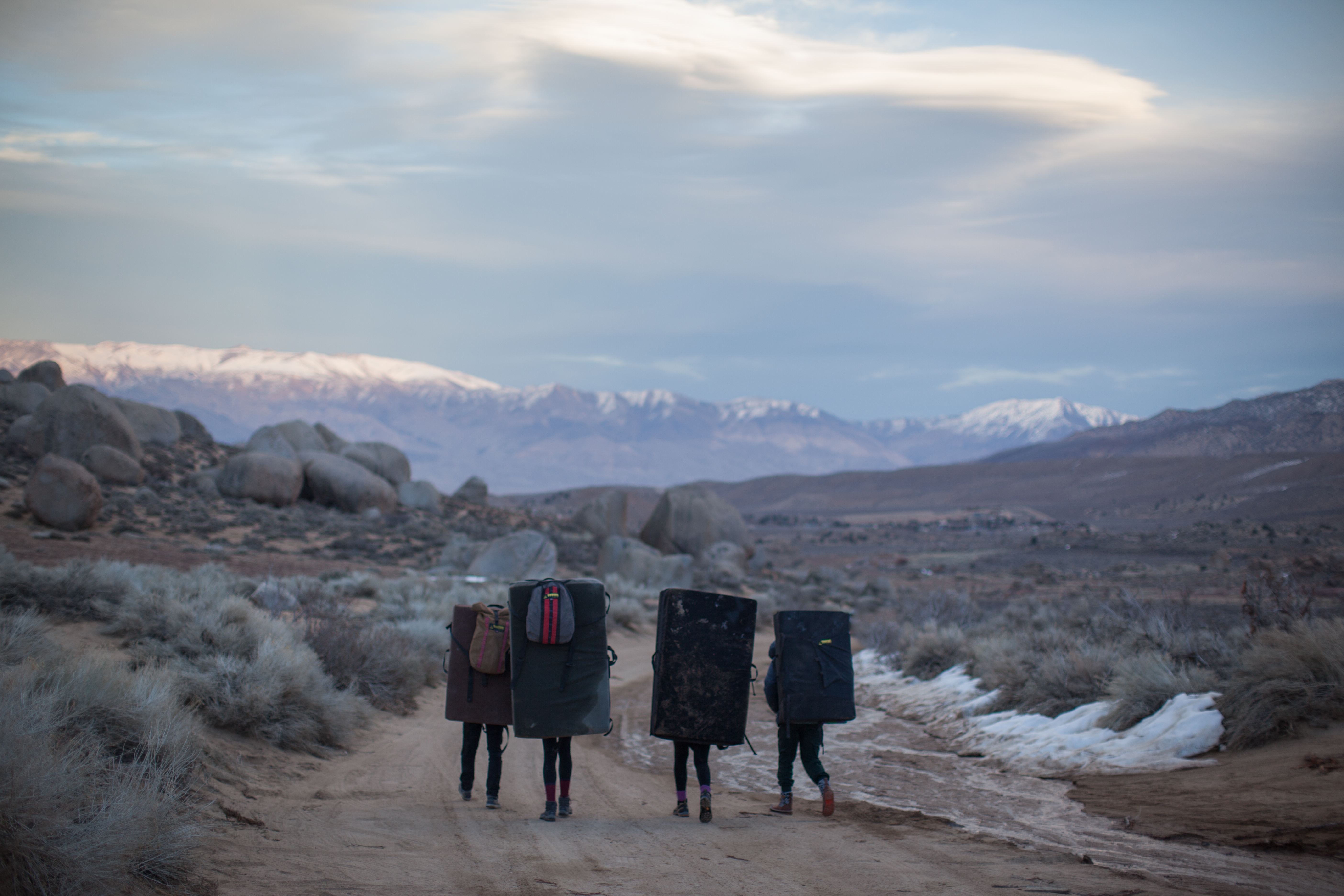
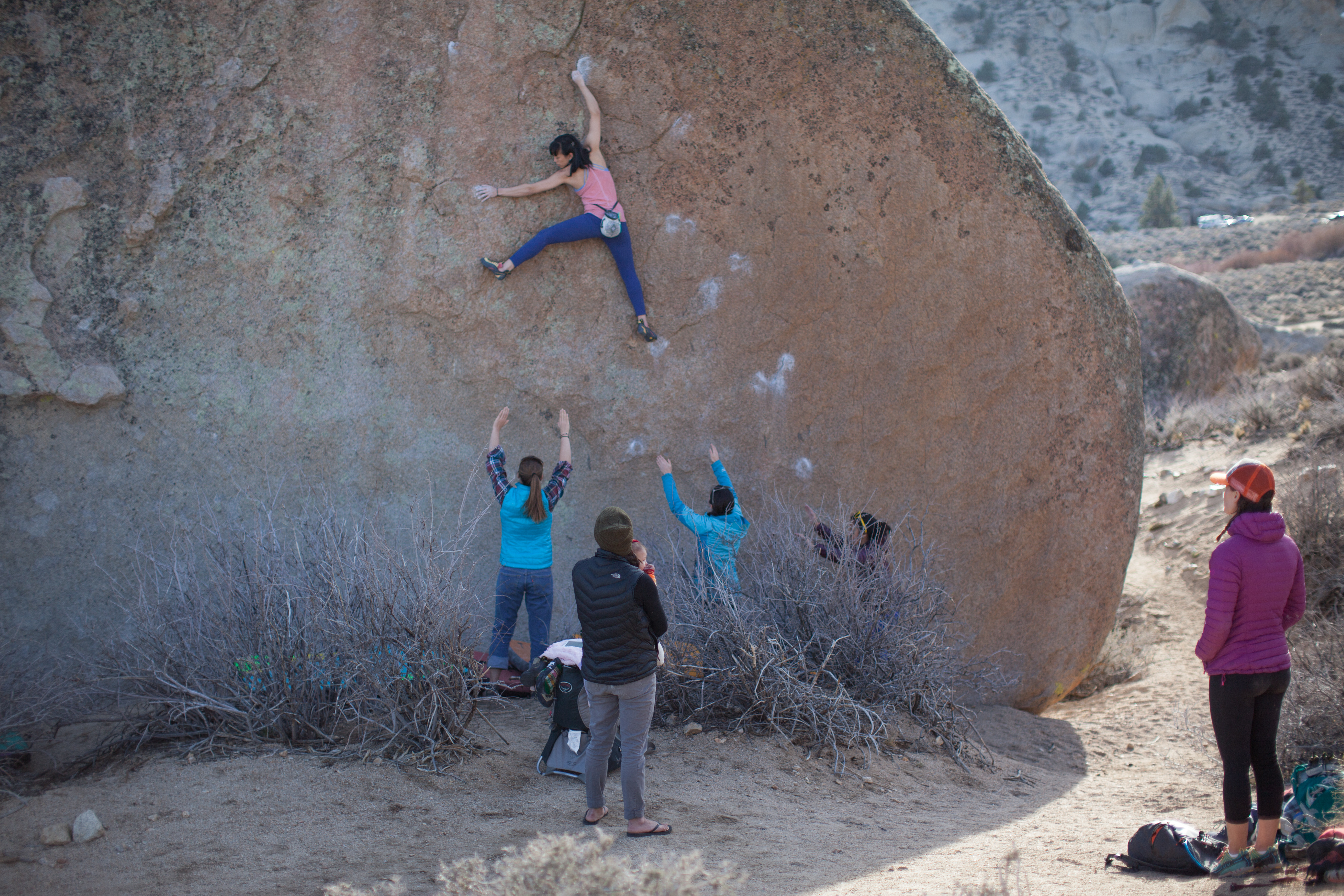

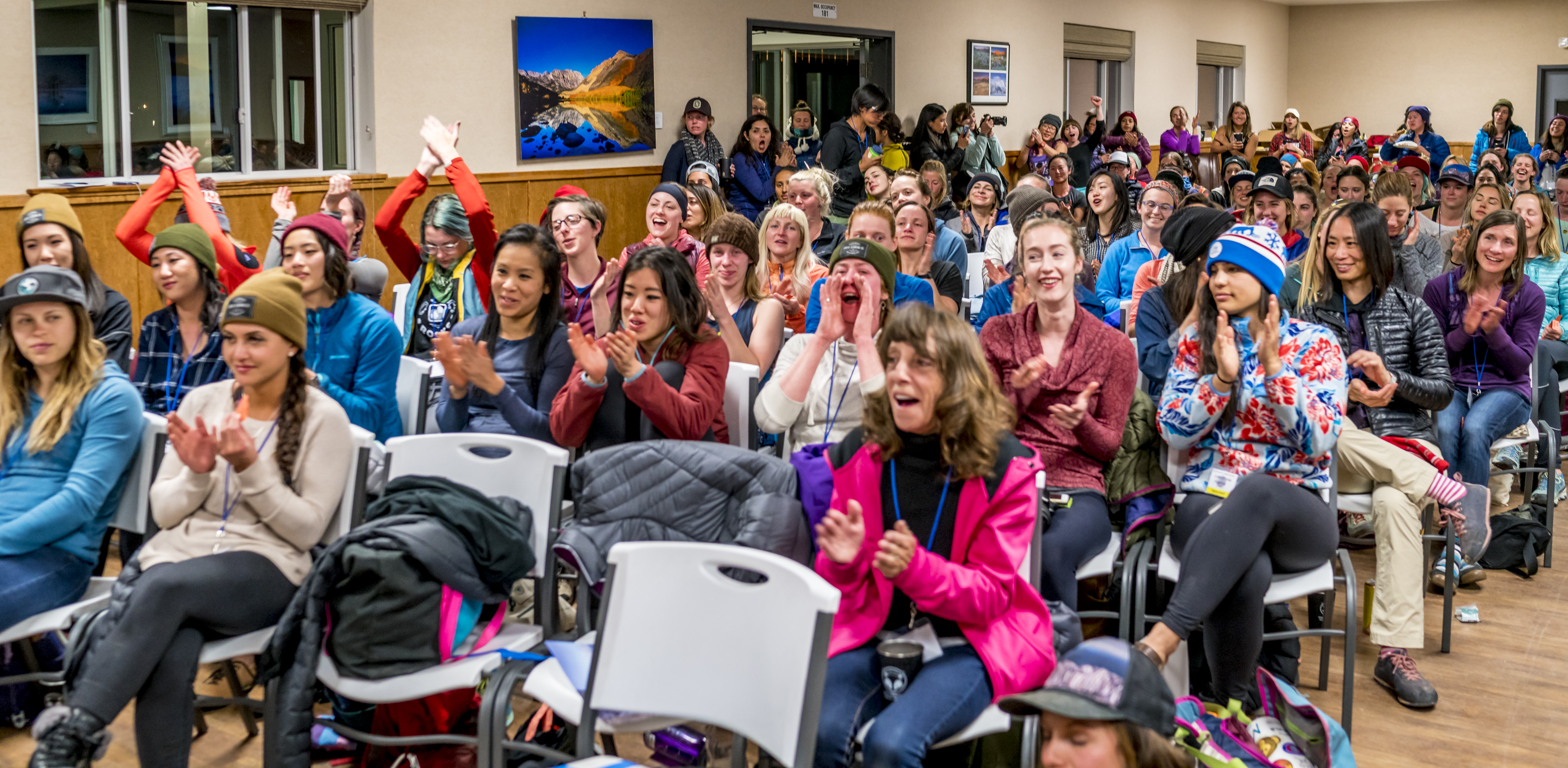
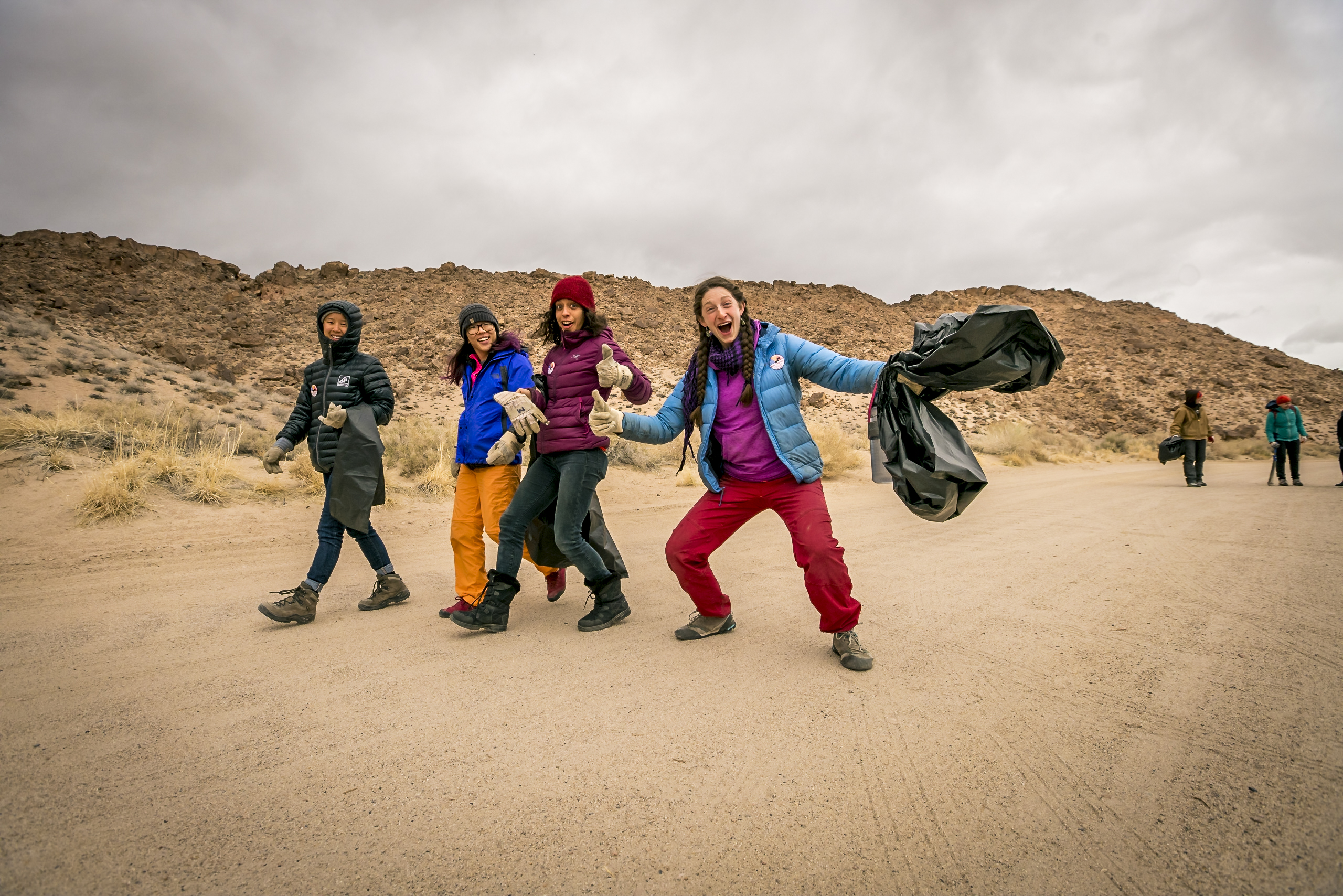

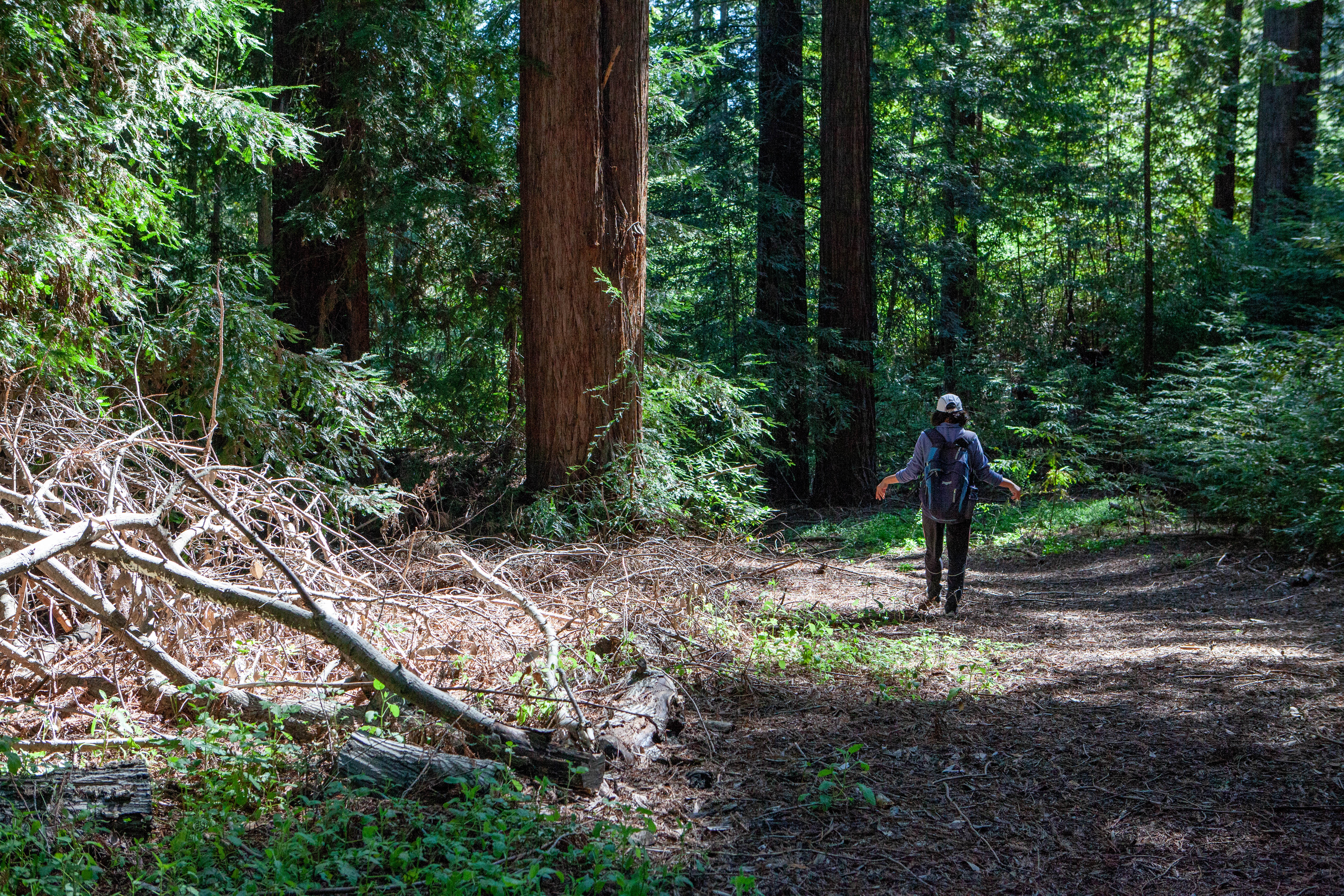

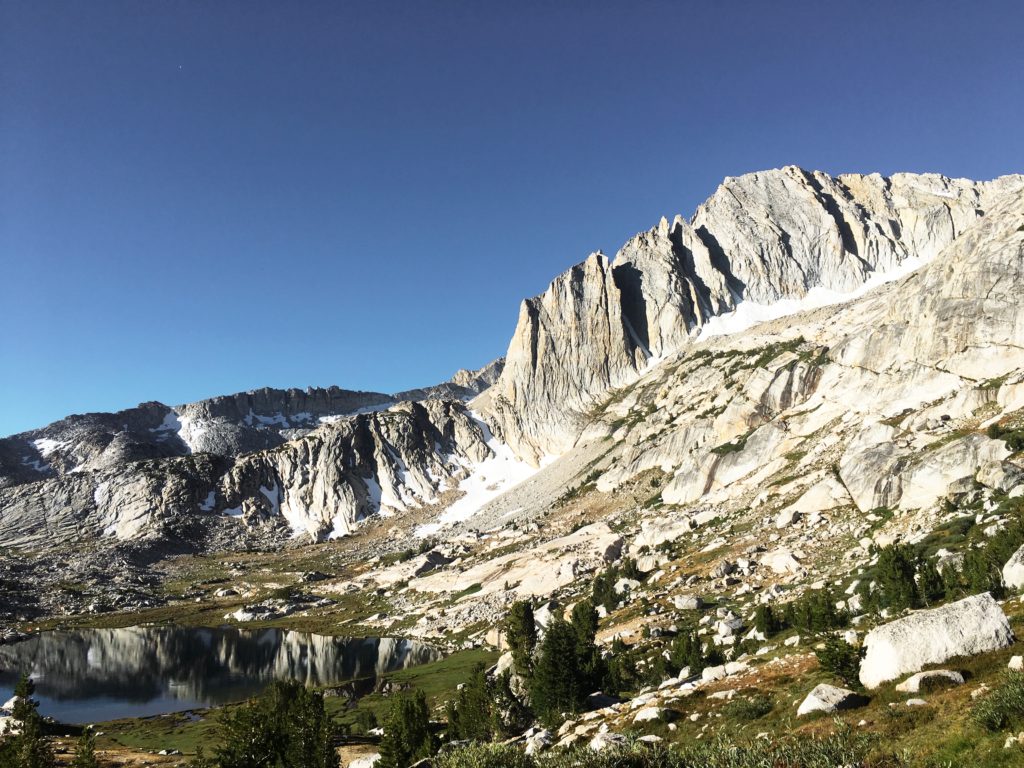
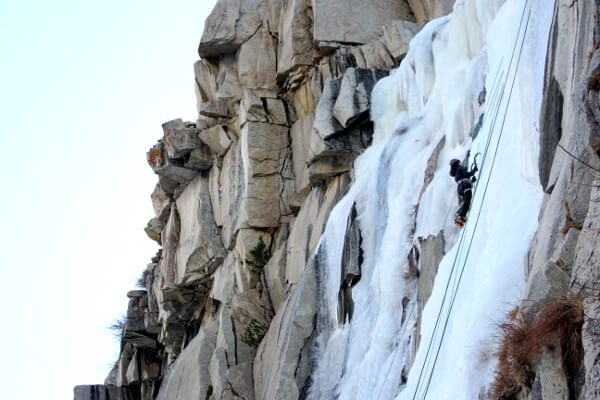

Excellently done.
I fucking love you Paulina.
This is fantastic.
Thank you for fighting the good fight! I’m not a climber but as an outdoors lover, and ultra runner…and hell, new Mom to a baby boy, I’m hyper aware of how women are spoken to, spoken of, and regarded – not just in the outdoor arena but in life, in general. I want to show my little man that women are strong, capable, smart, etc – no qualifiers – no new jeans required.
I began climbing at age 40. In the fall and spring I climbed in sweats. During the summer I climbed in cutoffs and tanks. I wasn’t out to make a fashion statement. I was out to climb. During the winter I climbed in either a one piece or several layers. Again—-to climb not to make a fashion statement. I wanted to be comfortable and be able to move.
Very well written! It sounds like MH just had dollar signs in their eyes focusing on women who love to shop instead of women who love to coimb.
I applaud your bravery Paulina, and agree with your assessment of the subtle ways MH could have done better.
I do like the fact that they at least stepped up and recognized the rightness of the decision to sponsor. I think the fundamental mistake might have been to tie their messaging to a specific campaign of Style and Jeans; this is very common in industry marketing circles, in order to track and prove out ROI. I also love the suggestion to consider indigenous aspects for spaces where we do our thing outdoors. All of that would have really helped MH hit a homer instead of a sacrifice fly (pardon the analogy, I really don’t know baseball).
In the end I want to encourage more brands to take risks like this, and do better in growing their respective businesses.